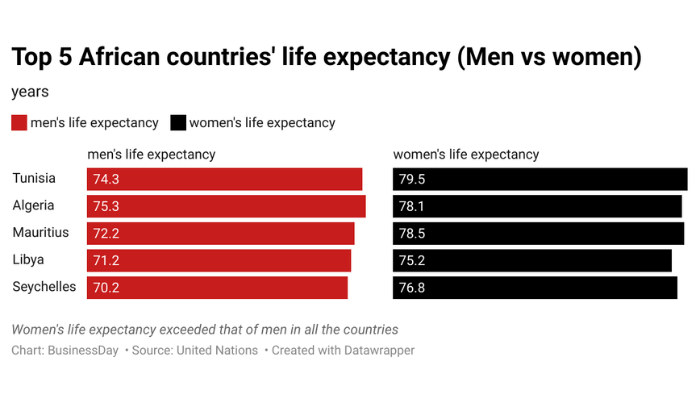….stories, science, and changing trends
On a cloudy Sunday morning in August 2025, 53-year-old Chinedu Pam (fictitious name), a life coach and fitness instructor from Plateau State, was preparing for church service when he suddenly collapsed. Later the doctors declared him dead. Chinedu, who underwent several surgeries while battling recurring illnesses, leaves behind his wife – now a young widow – and three children.
Just a few weeks later, in another quiet tragedy, 33-year-old factory worker Kabiru Kola (not his real name), from Kogi but lived in Lagos, went to bed one evening and never woke up. Neighbors said Kabiru was undergoing treatment at a local clinic before his death on October 4, 2025, which was reportedly linked to excessive alcohol consumption. “He had no money to pay the hospital bill,” an eyewitness told this correspondent. “So he deposited his phone as collateral, hoping to recover and pay later – but he never did.”
Whether young or middle-aged, fitness coaches or factory workers, these stories highlight the sobering reality that men, across all classes and circumstances, die younger than women. Its causes are often linked to age-related diseases, financial stress, risky lifestyle habits, and limited access to health care. Each death underscores a broader pattern that researchers have long warned about.
Recent UN figures confirm that women around the world live on average five years longer than men. In Russia, this gap spans nearly 12 years, the longest anywhere. In Nigeria, life expectancy for men ranges between 54.3 and 60.4 years, while for women it ranges between 54.9 and 64.2 years. Behind these figures lie stories like Chinedu's and Kabiru's – lives cut not by mere luck, but by a combination of biology, economics and the quiet burdens that people often carry silently.

Science
Segun Bello, eHealth consultant and founder of Clinics Limited, explains that the secret behind women's longevity partly lies in their genes.
“In addition to determining the sex of the child, women's genetic makeup gives them a better advantage in terms of longevity than men,” Bello said. “Women's XX gene contains immune-related components and two key body defense cells that help boost their immune system, while men have only one X and one Y gene.”
Hormones also play an important role. According to Bello, “Women produce estrogen, a component that boosts good cholesterol, also known as high-density lipoprotein (HDL), while men's testosterone leads to higher levels of bad cholesterol, or low-density lipoprotein (LDL), which suppresses the immune system and encourages risky behavior in men. Is.”
A Nigerian consultant gynecologist (name withheld) echoed these biological findings, adding that lifestyle and social habits reduce men's lifespan even further. “Men are more likely to smoke, drink heavily, drive dangerously, have fewer health-related behaviors, have greater exposure to occupational hazards, have higher injury rates, have greater exposure to pollution and have more stress,” he said. “Less health-friendly behaviors may delay treatment leading to preventable deaths.”
This trend is not unique to Nigeria. Globally, women live many years longer than men. According to Geranc's demographic report, The Widowhood, in 1960 there were twice as many widows as widowers in America. By 1990, this gap had increased to four widows for every widower, reflecting women's stronger life expectancy.
This pattern is also visible at the community level. Bello cited findings from local Residents and Landlords Association meetings in Nigeria where members observed more landlady than landlords, an indicator of men's and women's growing leadership in property ownership.
Gender inequality in life expectancy is universal. Every country with reliable health statistics shows women living longer than men. “Women appear to be coping better than men globally in terms of survival,” one report said.
Research supports this biological edge. “Women have a genetic advantage, they have two X chromosomes. If one is affected, the other compensates,” a Montreal life expectancy researcher wrote in Scientific American. “However, men have an X and a Y, and one cannot complement the other.”
Beyond biology, lifestyle remains a powerful factor. Men are more prone to risky habits, smoking, alcohol consumption, reckless driving, and violence, and often work in more dangerous environments. They also neglect medical checkups and delay seeking help when they become ill, says Bertrand, a Montreal demographer.
“Biologically, women benefit from protective hormones like estrogen, which supports heart health and reduces the risk of heart attack and stroke,” Bello said. Studies also show that women have stronger immune systems on average.
Socially, men often face greater financial and social pressures, increasing their susceptibility to stress-related diseases.
In the end, longevity appears to be a mix of biology, behavior, and social balance, which continues to favor women across continents and cultures.
Also read: Weak system keeps Nigerians' life expectancy behind peers despite health reforms

changing trends
Despite men's lower life expectancy, experts say the gap between men and women may be closing. Zakir Hosein, managing editor of the European Journal of Public Health, believes that more women are adopting the same behavior as men.
“Like Sweden, more women are now smoking and drinking excessively,” says Hosin. “This trend may eventually narrow the life expectancy gap as women become more educated and active in the corporate workforce.”
A recent UN report highlights another important change. The global fertility rate has fallen from 3.31 live births per woman in 1990 to 2.25 in 2024. However, the difference remains striking. Sub-Saharan Africa still has an average of about four births per woman, while countries like China, Italy and Spain have recorded rates of just 1.4.
“Each delivery puts a woman's life at risk,” the report said. “But with advances in modern health technologies, better education and fewer pregnancies, women are beginning to consolidate their longer life expectancies, as long as they do not adopt risky behaviors.”
Ultimately, the stories of Chinedu and Kabiru are not separate tragedies. They highlight a broader truth that biology, behavior, and social change are constantly rethinking who lives longer – and why.
Also read: Life expectancy figures in Nigeria are disappointing due to high maternal and infant mortality rates
global picture
The gap in life expectancy between men and women is not unique to Nigeria or Africa – it is a global pattern that transcends geography and income. In the United States, men live an average of 73.4 years, while women live an average of 80.1 years – a difference of 6.7 years. According to Bertrand Desjardins of the Department of Demography of the University of Montreal, as quoted in Scientific American (SCIAM), in France, the difference in life expectancy between men and women is up to 7.8 years, while in the United Kingdom it has decreased slightly to 5.3 years.
Elsewhere the contradiction becomes more stark. Women in Russia live 12 years longer than men. Yet in countries like India (0.6 years) and Bangladesh (0.1 years) this difference is almost negligible. These variations reveal how culture, economics, health care, and social norms combine to shape the balance between the longevity of men and women around the world.
How to improve the life expectancy of men?
Early marriage and childbearing often place a heavy burden on men, who traditionally feel obligated to provide for their families. To address this imbalance, the United Nations emphasizes that “raising the minimum legal age of marriage and integrating family planning and safe motherhood measures into primary health care can help raise women's education levels, facilitate their economic participation in the family, and reduce the incidence of early childbearing.”
Delaying marriage and motherhood deprives young women of the opportunity to pursue education and employment, which are key drivers of both family well-being and national development. As analysts say, “Increasing women's education levels and economic empowerment will enable women to participate in major financial decisions in households, while reducing the gender responsibility gap and burden between couples.”
In short, empowering women through education and reproductive health improvements not only promotes gender equality but also creates more balanced and sustainable family structures.
Bello (cited earlier) underlined the importance of men making conscious, active choices to live long and healthy lives. This includes adopting better health-seeking behaviors, engaging in regular physical activity, eating a balanced diet, and avoiding risky habits such as drug use and excessive alcohol consumption. These patterns are often associated with testosterone-driven tendencies. Experts caution that it is better to abstain from alcohol and tobacco altogether, as it reduces the risk of age-related diseases and enhances overall health.
The consultant gynecologist (quoted earlier) also stressed that Nigeria should adopt stronger tobacco and alcohol control policies through taxation, restriction and cessation programs to further improve men's life expectancy and public health outcomes.











